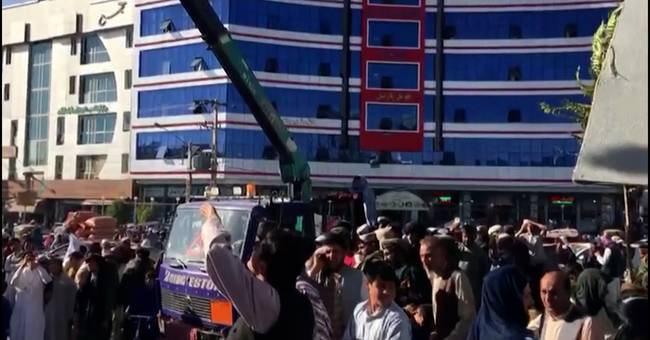On Saturday, four dead bodies were dragged to various squares in Herat in northwestern Afghanistan.
Several of them were hung there in cranes for public viewing.
According to the Taliban, the people whose bodies were now on display had been kidnapped and killed in a police operation.
- The purpose of the action is to show criminals that they are not safe, said representatives of the Taliban to the AP in the crowd that arose.
"Not surprising"
What happened in Herat is not surprising, according to Helene Lackenbauer, who is the research leader at the Swedish Defense Research Agency (FOI).
Even though the Taliban have had a slightly softer appearance, they still stand on the same ideological basis when it comes to justice, she says.
- They have always said that the legislation they will apply and advocate is Sharia and Islamic law.
It is their interpretation of this that we see now.
The demonstration is a way for the Taliban to show that they are serious about establishing sharia law.
At the same time, the campaign should convey that they are capable of creating order, according to Lackenbauer.
The deterrent methods have in the past proved effective in combating crime, and from the Taliban's point of view, it is paramount to the rule of law and human rights.
- Their interpretation is that the legislation exists to maintain people's obligations to God.
It differs from our legal view, where we believe that legislation exists to create a framework for our rights, says Lackenbauer.
Develops policy for public executions
The fact that the Taliban's tough legal system is now looking back is also not unexpected given who is part of the new regime.
Several of the representatives were high-ranking even in the 90s.
One of them is Mullah Nooruddin Turabi, who was then the minister responsible for "morality and decent living".
Today he is the minister responsible for prisons.
-
The chopping of hands is necessary for our security, says Turabi to AP, as he announces that the regime is to develop "a policy" for public executions.
It is clear that the Taliban's seizure of power means further steps towards a brutal legal system, but according to Helene Lackenbauer, the methods have deeper roots than that.
Even under the previous government, similar tendencies were seen, she says.
- It has been around all along.
A common punishment in rural areas has been for whipping or stoning women.
It's just that we have not heard of it because the light from the west has not been on it, says Helene Lackenbauer.

